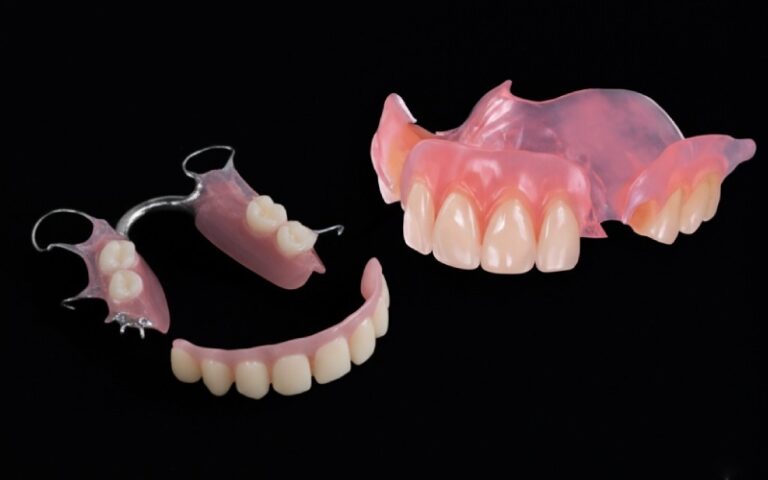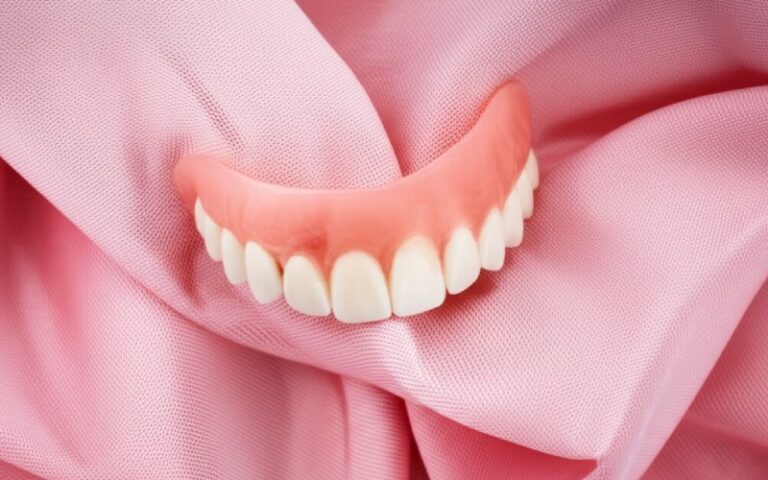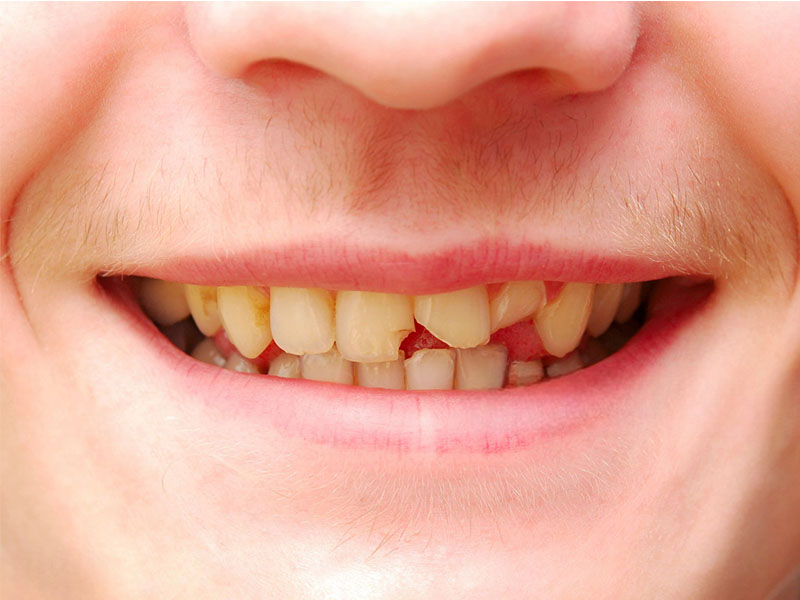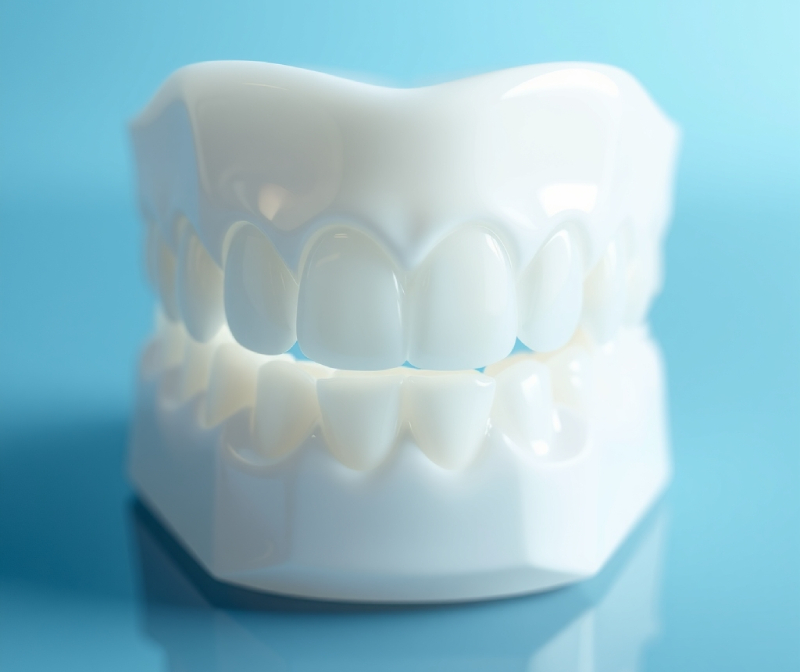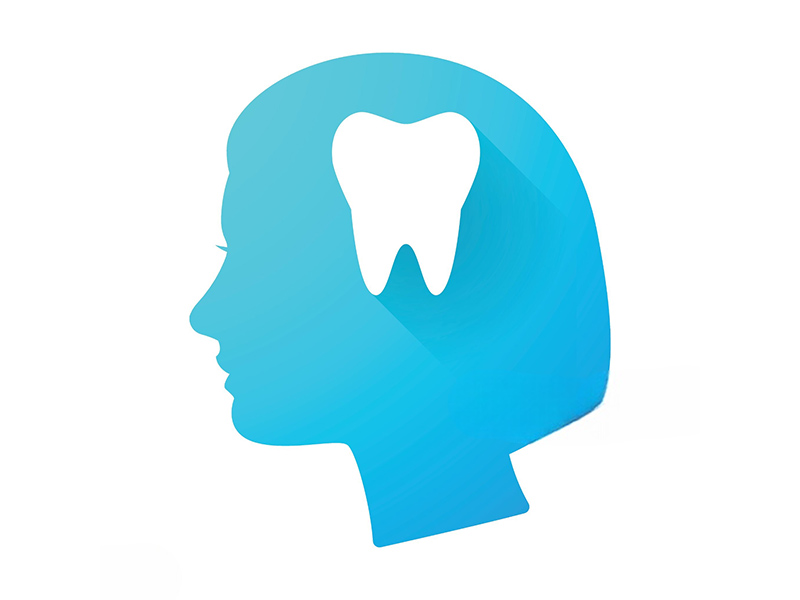
The Intertwined Connection: Exploring the Link Between Mental Health and Dental Health
Have you ever noticed that when you’re feeling down, stressed, or worried, your mouth seems to notice too—with more cavities, bad breath, or sore gums? Or maybe you’ve felt your mood sink because of ongoing tooth pain, being embarrassed about your smile, or how much dental work costs. If you’ve wondered, “Is there really a link between my mind and my mouth?”, you’re not alone—and you’re asking a good, research-backed question.
It turns out, mental health and dental health are close partners in your overall well-being. The relationship goes both ways, each one changing the other in ways a lot of people don’t think about, but really matter.
Don’t worry if you haven’t thought much about this link before. That’s what we’re here for—to break it all down, clear up any mix-ups, and give you easy steps to care for both your smile and your mind.
Table of Contents
The Surprising Link Between Mental and Dental Health
Let’s begin with what most people assume: mental health and dental health live in two totally different areas. You see a therapist for stress, a dentist for toothaches, and never shall the two meet… right? The truth is, these two areas fit together like peanut butter and jelly.
Researchers and doctors now talk about a “two-way relationship”—a real back-and-forth:
- Mental health shapes your oral health. If you’re feeling down, anxious, or taking certain meds, your teeth and gums can take a hit.
- Bad oral health affects your mood and stress. Ongoing pain, trouble eating or talking, and hiding your smile can make you feel even worse and add to your stress.
But how does all this happen? And how can you stop it? Let’s look at it one step at a time.
How Mental Health Problems Affect Your Mouth
Picture this: you’re going through a rough patch. Maybe you’re feeling anxious, weighed down by sadness, or just barely making it through. What happens to your tooth habits?
For many people, brushing and flossing slide down the priority list. Sugary snacks seem more tempting. And stress? That can bring its own set of dental problems. Let’s get into the most common ways your mind can mess with your mouth:
Depression and Anxiety: The Quiet Wreckers
- Skipping Self-Care: When sadness or worry takes over, energy drops. Missing brushing and flossing feels easier than showing up for the day. Over time, plaque builds up—a starting place for tooth decay (cavities) and gum trouble (gingivitis, periodontitis).
- Eating Mistakes: Craving soda, sweets, or comfort food isn’t just about taste. Depression and anxiety can mess with your brain, making these snacks harder to ignore. Sadly, all that extra sugar feeds the bacteria that cause cavities.
- Dry Mouth: Many depression and anxiety drugs cause dry mouth. Normally, spit helps rinse away the bad stuff and guard your enamel, so when you have less, your teeth get in trouble faster.
- Teeth Grinding: Ever wake up with a tight jaw after a hard week? Teeth grinding often happens with stress and worry. If it keeps up, you can chip your enamel, flatten teeth, and cause jaw trouble like TMJD.
Everyday Example:
Anna, a college student battling depression, stopped brushing regularly and started drinking more energy drinks. After one semester, she had several cavities and sore gums—a classic case of how mood changes can quietly mess up your dental health.
Eating Disorders: How They Show on Your Teeth
Problems like anorexia nervosa and bulimia nervosa don’t just hurt how you see yourself—they beat up your mouth too:
- Acid Wear: Throwing up a lot (like people with bulimia do) covers your teeth with stomach acid, which eats away enamel. That’s why dentists can sometimes spot eating disorders before anyone else does.
- Not Getting Enough Nutrients: Healthy gums and teeth need lots of vitamins and minerals. If you don’t get enough calcium, vitamin C, or iron, your gums, enamel, and jawbone get weaker.
- Dry, Sore Mouth: Bad nutrition and being nervous about eating makes your mouth drier, teeth more sensitive, and leads to mouth sores.
Stress: More Than Something in Your Head
Stress isn’t just a feeling. It wears down your immune system, giving gum infections a better chance and slowing down healing in your mouth.
- Swollen Gums & Sores: A lot of stress hormones like cortisol can make your gums swell. Mouth sores can also pop up when life’s been rough.
- Grinding & Jaw Problems: All that night-time tooth grinding can turn into jaw pain, headaches, and broken molars.
Serious Mental Health Problems (Schizophrenia, Bipolar Disorder): Complicated Matters
Serious mental illnesses make it even harder to care for your mouth.
- Really Dry Mouth: Some antipsychotic meds make your mouth super dry, quickly raising the odds for cavities and mouth fungus.
- Trouble Keeping Track: Bad memory or strange thoughts can make simple routines like brushing or dental visits tough to manage.
- Barriers and Judgment: Sadly, people with serious mental health problems often have a hard time finding dentists who understand, face money problems, or feel judged.
Dental Fear: The Vicious Circle
Does the thought of a dental chair make your heart beat faster or keep you up at night? You’re not alone. About 1 in 5 adults are scared of the dentist—some avoid tooth care for years, trapping themselves in a rough cycle:
- Fear keeps you away from check-ups.
- Dental problems get worse, so future visits seem even more scary.
- The cycle worsens both pain and anxiety.

How Dental Problems Change How You Feel and Think
Now, let’s switch things around. You’ve seen how your mood can change your mouth—but what if you get stuck with sore teeth, lost teeth, or breath that embarrasses you? How does that affect day-to-day life?
Here’s how dental trouble can mess with your mind too:
Pain: Always Hanging Around
Who can focus at work—or feel happy—with teeth that throb, sore gums, or a swollen jaw?
- Pain grabs your focus, messes with your sleep and memory, and can push you toward sad or anxious thoughts.
- Oral pain messes up eating, talking, even smiling—fun times and regular moments both.
Confidence and Social Nerves: The Power of Your Smile
Your mouth shows up in every chat, meal, or group photo. It’s no shock that people with obvious tooth problems often feel:
- Ashamed of missing, broken, or stained teeth
- Worry about smiling or talking, and avoid hanging out or working with others—hiding their mouth whenever they talk
A British poll found that people who are unhappy with their teeth often feel worse about themselves and get nervous in social situations. The point? Your teeth and your self-worth go hand in hand.
Money Worries: Stress That Hits Home
Let’s not ignore it—dental work can cost a lot, especially when you’ve gone months or years without visits. The bill alone can be a big source of worry, anxiety, and even sad feelings for families.
Body-Wide Swelling and Brain Health
New studies link gum disease and mouth problems with changes in brain chemistry and mood. The bad germs in your mouth don’t just stay there—they can cause swelling all over, which might make depression or memory problems worse.
The Part (and Problems) of Medications
We’ve mentioned this, but it’s good to repeat: the pills that help your mind feel steady can also hurt your teeth and gums. Here are some of the main things to be aware of:
Dry Mouth—The Mouth’s Biggest Enemy
A lot of mind-related drugs—especially antidepressants, anxiety meds, and antipsychotics—can risk dry mouth. Why is that bad?
- What Spit Does: Think of spit as your mouth’s cleaner and shield. It washes away food and bad germs. If you don’t have enough, your mouth misses out on protection.
- Real Trouble: Having a dry mouth can give you up to 3 times as many cavities. That means more fillings, root canals, or extractions.
Wanting Sugar
Some psychiatric medications make you crave sugary stuff, which only adds to dental problems.
Gum Swelling and Other Odd Problems
Some meds (not as common) can make your gums puff up or grow more than usual. This feels weird and needs a dentist’s help.
What Can You Do?
- Drink More Water: Sip all day, chew sugar-free gum, or try fake spit (sold at most drugstores).
- Tell Your Dentist: Let them know every pill you’re taking so they can help keep your teeth safe.
- Don’t Stop On Your Own: Never quit your mental health pills without your doctor’s advice.
How to Notice Warning Signs—In Yourself or Someone Close
Most of the time, it’s not clear where tooth problems end and mental health starts. Sometimes, the first sign something’s off is a change in your mouth—or in how you take care of it.
Signs Mental Health Is Hurting Your Mouth:
- Brushing or flossing less than twice a day for a few days in a row
- Suddenly eating more candy or sipping sugary drinks
- Mouth that feels sore or sticky all the time
- Grinding teeth—especially at night
- Skipping dental visits because of worry or no energy
Signs Dental Health Is Hurting Your Mind:
- Ongoing pain (teeth, jaw) that distracts or gets you down
- Hiding your mouth, or staying home from social stuff because you’re embarrassed
- Trouble eating, talking, or sleeping because of dental problems
- Skipping important or fun things in your life because of your teeth
If you see any of these in yourself or someone you know, it’s a good idea to get help—from a dentist, counselor, or both.
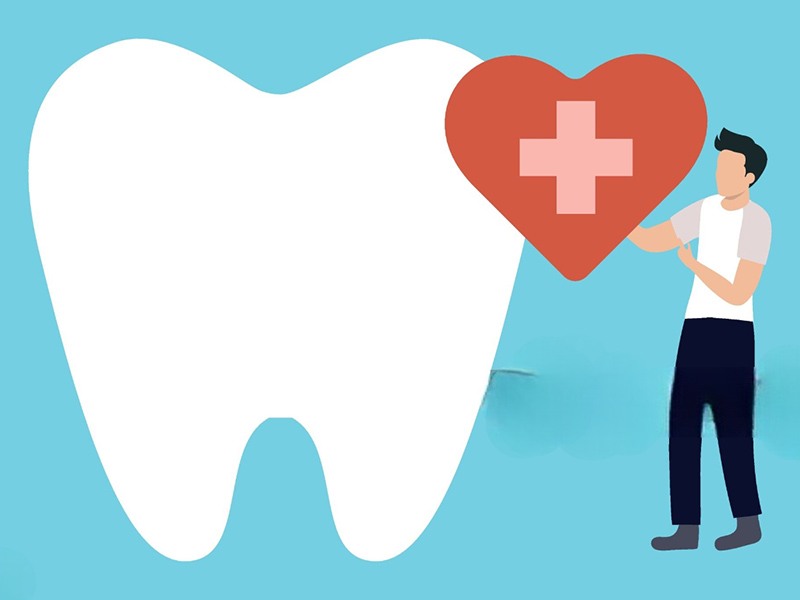
Simple Tips for Whole-Body Health
Now for the practical bit! If all of this sounds a bit much—don’t worry. You have more control than you might think to get back your smile and your good mood.
What to Try at Home
- Make Tooth Care a Habit:
Link brushing and flossing to something you already do, even when you don’t feel like it. For example: “brush after breakfast,” or “floss when my show ends.” - Drink Water, Check Sugar:
Water is your mouth’s best buddy, especially if your pills cause dry mouth. If you crave sweets all the time, try sugarless gum or mints. - Find Ways to Cut Stress:
Deep breathing, paying attention to now, or listening to calming sounds can ease your jaw and help with dental fear. - Eat Healthy:
Try meals with stuff like calcium, vitamin C, and protein (good for both teeth and mood). - Don’t Skip Appointments:
Even if you’re nervous—regular checkups hurt less (and save money) than fixing a crisis later.
When to Ask a Pro
- Dentist:
If you notice pain, swelling, or changes you can see—or if it’s been ages since your last cleaning—make an appointment. Sooner is easier on your wallet and your nerves. - Mental Health Care:
If you’re stuck feeling low, worried, or too overwhelmed—or if fears around dentist visits take over your life—reach out for help.
How Dentists and Therapists Can Work Together
“Working together” is a buzzword for a reason! Here’s what good teamwork looks like:
- Dentists:
Checking for signs of sadness or worry. Being gentle and explaining things clearly. Talking about how your meds might change your mouth. - Mental Health Pros:
Asking you about your cleaning habits. Talking through how your meds may affect your teeth. Letting you know where to find a gentle dentist who gets it. - You, the Patient:
Talk openly, mention both tooth and mental worries, and tell everyone about all the pills you take.
Helpful Takeaways for a Healthier, Happier You
Let’s wrap it up with the highlights. If you only remember a few things, let it be these:
- Mental and dental health are two sides of the same coin. Taking care of one means helping the other.
- Pay attention to warning signs. Changes in your mood, energy, or mouth can be early clues.
- You have more power than it seems. Simple, steady habits—brushing, flossing, drinking water—make a bigger difference than you realize, even if it’s hard to get started.
- Don’t let shame or fear stop you from getting care. Dentists and mental health folks are there to help, not to judge you.
- Stopping problems early is way better. Regular visits and honest talks catch trouble before it blows up, and save you pain and cash.
- Best results come from teamwork. Doctors, dentists, and you—working together beats going it alone. Don’t be shy about asking for that kind of support.
Ready to Take Your Next Step?
If you’re noticing warning signs—in you or someone you care about—start by talking openly with your care team. Schedule that cleaning you’ve been putting off. Tell your doctor how you’re feeling. If fear about the dentist is holding you back, ask about calming options.
Remember: taking charge of your health isn’t weak, it’s brave. You deserve a healthy mouth and a good mind.
If you want more support or info, check out the American Dental Association or National Institute of Mental Health for honest guides and searches for care.
FAQ: Quick, Easy Answers
Q: Can mental health problems really lead to bad teeth?
A: Yep! Feeling low, anxious, or taking certain meds can set you up for more cavities through dry mouth, rough habits, and eating changes.
Q: What if the dentist makes me too anxious?
A: Tell your dental team about it. Dentists today have lots of ways to help nervous people, like explaining everything, short trips, soothing music, or safe sedation if needed.
Q: My medication is drying my mouth out. How do I keep cavities away?
A: Drink water a lot, use sugarless gum, skip sticky candy, and ask your dentist about fake spit products.
Final Thoughts: Your Smile and Mind Matter—Both of Them
It takes guts to ask questions and reach out for help—for your mood, your teeth, or both. You’re already on the right track by reading this. Every step you take for you—no matter how tiny—gets you closer to better health.
Smile, breathe deep, and know you are not alone on this road!

